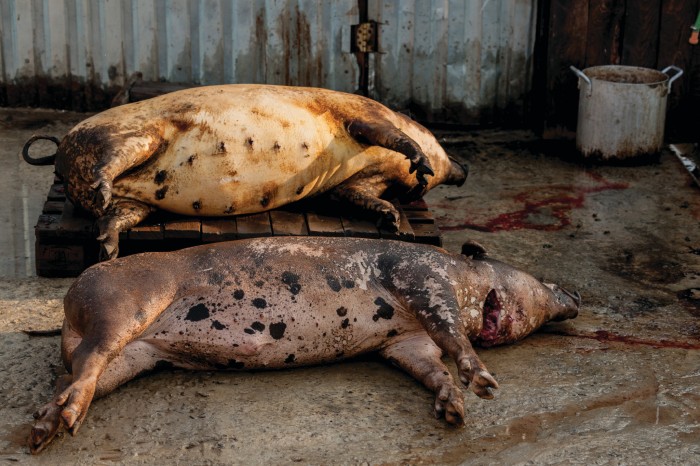Around 130,000 have killed on large commercial farms in Bulgaria over the past few weeks, as the worrying spread of African swine fever (ASF) creates tension in the eastern European country.
Bulgaria has reported more than 30 outbreaks across 10 regions in the past few weeks, including six on large commercial farms in the north of the country, close to the Romanian border. These included a farm with, 36,000 pigs, alongside others with 28,000 and 17,000 pigs and, most recently, an outbreak on a farm with just over 8,000 pigs confirmed on Friday.
Amid fears Bulgaria’s entire pig herd of about 500,000 could be at risk, at a cost of nearly £1 billion, a state of emergency has been confirmed in several districts. Officials have ordered the culling of all home-raised pigs within 20km sanitary zones set up around all registered commercial pig farms in the country, Reuters reports. Almost every household in rural areas keeps home-raised pigs.
However, Reuters reported that the move is causing unrest, with protest rallies were held in several parts of southern Bulgaria on Friday, as hundreds of pig keepers resist the orders, arguing that there have been no outbreaks in their regions.
Agriculture Minister Desislava Taneva extended the deadline for culling in the area from Aug 2 to Aug 11 after 31 mayors in the southern Pazardzhik district issued a joint statement saying they would not allow the culling to proceed.
However, representatives of Bulgaria’s commercial pig industry, backed by meat industry representatives, have called for a nationwide state of emergency to be declared, with even stricter measures to be introduced to curb disease spread. There have been reports the authorities are considering the possibility of a mass cull of all home-reared pigs, if pig keepers do not abide by the veterinary rules set down.
Pork prices in Bulgaria rose by 30% during July, while neighbouring Greece banned Bulgarian pork imports. The authorities are also reported to have mobilised military and police forces to help to combat the spread of the virus.
Contaminated vehicles are thought to be responsible for the first two outbreaks in Bulgaria on non-commercial farms, the UK Animal and Plant Health Agency said. “But it remains to be seen if the same is true for the large commercial premises which would have higher biosecurity protocols,” the agency said in its latest assessment of ASF spread in Eastern Europe.
Romania escalation
The Bulgarian outbreaks are part of a wider trend that has seen an escalation of ASF cases in domestic pigs in eastern Europe in recent months, notably in Romania, with around 300 cases reported in July, mostly in backyard holdings, but including a 20,000 pig commercial farm. This compared with 76 cases in June.
Meanwhile, Slovakia reported its first case was found in late-July in a pig on a backyard holding in a village a few kilometres from the border with Hungary, where ASF has been found in wild boar. Four other susceptible pigs on the holding were slaughtered. A second case was identified in a single on a holding 5km away a few days later.
There were 18 cases confirmed in domestic pigs in Poland in July. The Philippines banned meat imports from Germany due to ASF fears after the authorities discovered a shipment of pork from Germany co-mingled with 250kg of pork from Poland.




